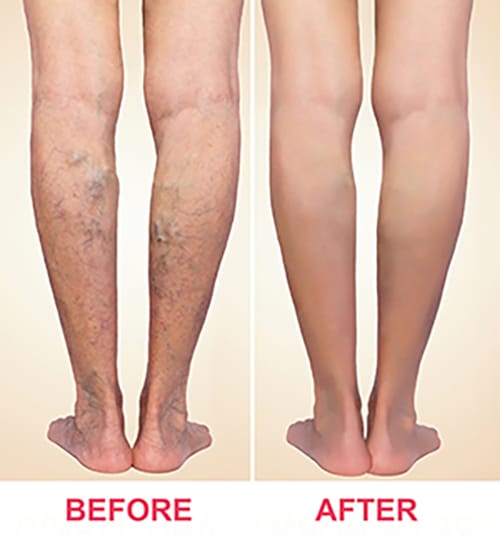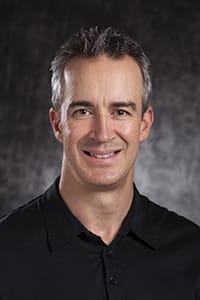Varicose Vein Treatment
Solutions for Varicose Veins
Adventist Health Portland’s Multi-Specialty Surgery Clinic offers an in-office solution that improves both the appearance and the symptoms of varicose and spider veins. Modern techniques make repairing veins safe, fast and nearly painless. They also produce excellent results. You can expect:

- Numbing drugs but no general anesthesia.
- Little to no discomfort.
- To drive yourself home from the appointment.
- To return to work the next day.
- To resume most activities within a week.
- Improved appearance quickly.
Procedures
Procedures take 30–75 minutes to complete. You will be able to walk out and drive home after the appointment. Though there are several options, the most common procedures are radiofrequency ablation (RFA) and sclerotherapy.
Sealing leaky veins with RFA
RFA is usually better for larger varicose veins. After numbing the area, the surgeon threads a thin tube into the problem vein, guided by ultrasound. The tube painlessly heats the vein using RFA. The heat closes the vein. Blood diverts to healthier veins and overall flow improves.
Most people get pain relief immediately. The area will begin looking better within a few days.
Fading spider veins with sclerotherapy
Sclerotherapy is usually better for smaller varicose veins and spider veins. The surgeon injects a solution or foam into the vein. This treatment seals the problem veins. Blood then channels to other veins. The body absorbs the sealed veins, and they fade over a few weeks.
Leaky valves lead to varicose veins
Imagine a paddlewheel that circles around bringing water upward. In a similar way, blood circulates around the body. To get back to the heart from the leg or foot, the blood must travel against the pull of gravity. Like the paddlewheel, tiny valves in the leg veins help push the blood upward.
If a valve weakens, blood can leak and pool. This results in varicose veins. Blood valves can weaken for several reasons, including:
- Family history
- Multiple past pregnancies
- Long periods of standing
- Obesity
- Getting older
- Past injuries or surgeries
Common symptoms of varicose veins
Many varicose veins appear just under the skin as raised bulges that can look twisted and/or blueish. But not all varicose veins are where you can see them. Symptoms of varicose veins include:
- Aching, itching or heaviness in the legs.
- Throbbing or cramping in leg muscles.
- Bluish or purple ankles or sores that won’t heal.
If you have one or more of these symptoms, you may also notice swelling in your legs and ankles. Swelling by itself may be caused by other conditions.

Stephen R. Crook, MD
Dr. Crook has extensive education and training in the treatment of varicose veins and venous disease. As a general surgeon, he provides the best options for the underlying issue affecting each patient. He offers the full range of treatment, from medical therapy to minimally invasive procedures. He has treated varicose veins for over 22 years and performed radiofrequency ablation for 14 years.View his profile.
Schedule an appointmentCall503-256-1575to feel and look better with safe, fast, effective vericose vein treatment.